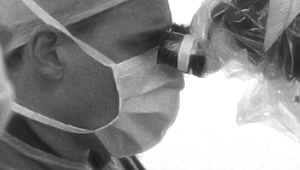HEALTH - PAIN FREE FOR LIFE
Ask the Spine surgeon
December, 2014 - Issue #122
 |
It sounds like you've utilized the majority of conservative treatments, but if you were my patient, I'd want to give the physical therapy more time to work its "magic." Results aren't instant, but they can be lasting. In many cases, I'd also prescribe a visit to a good chiropractor to ensure that relief couldn't be found through the strengthening and proper alignment of the back. No matter what, I'd prescribe a quality compound anti-inflammatory/pain cream so that you can get major relief through the topical application of proven medications. No reason to overwork your liver with constant pill popping. Swapping one physical ailment for another is no way to live.
If conservative treatments are ineffective, it's time to start talking about surgery. No one wants to hear that, but when I explain that the treatment can reduce the likelihood of adjacent segments degenerating, patients seem to perk up.
There's more good news. With the advent of artificial cervical discs, which were approved by the FDA in 2007, so much has improved in the world of neck and back surgery. These devices, which are inserted between two vertebrae after the diseased disc has been removed, decompresses the spinal cord while preserving your normal range of motion. In the past, bone grafts, screws and plates were used - and surgery was, by the nature of the tools available, more invasive.
Today, patients like you:
• return to their normal activities faster
• see earlier post-op neck motion
• are able to reduce degeneration of adjacent segments
• experience shorter operation times
• have less chance of complications
• usually are able to return to their homes the same day of their procedure
If your pain is significantly affecting your ability to function - and, therefore, your quality of life - surgery is worth your consideration. Each of my artificial-disc-replacement patients have been able to return to their normal activity levels after surgery and report a substantial improvement in their quality of life.
If you have more questions, give my office a call. We can sit down and discuss your individual case after I review your x-rays and medical history.
Wishing you the best,
Kapil Moza MD, FACS
Diplomate, American Board of Neurological Surgery
PS: I am excited to announce that I have just become a Fellow of the American College of Surgeons (FACS). It's an honor to be recognized for outstanding outcomes by my peers. I also just received word that I again earned a Vitals Patients' Choice Award. Only 5 percent of doctors nationwide were accorded this honor by their patients in 2014. It's been a good month! I'm grateful to my patients for their confidence and support.
Dr. Moza's Santa Clarita office is conveniently located on Lyons Avenue. 805-497-3622
|
||||||||||||||||||||||||||||





